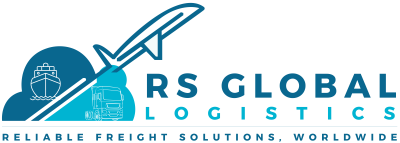What Are Incoterms®?
Published by the International Chamber of Commerce (ICC), the International Commercial Terms, referred to as Incoterms®, are a set of terms that clarify international trade agreements and obligations between buyers and sellers, globally.
| Incoterm 2010 | Export customs declaration | Carriage to port of export | Unloading of truck in port of export | Loading on vessel in port of export | Carriage (Sea/Air) to port of import | Insurance | Unloading in port of import | Loading on truck in port of import | Carriage to place of destination | Import customs clearance | Import taxes |
|---|---|---|---|---|---|---|---|---|---|---|---|
| EXW | Buyer | Buyer | Buyer | Buyer | Buyer | Buyer | Buyer | Buyer | Buyer | Buyer | Buyer |
| FCA | Seller | Seller | Buyer | Buyer | Buyer | Buyer | Buyer | Buyer | Buyer | Buyer | Buyer |
| FAS | Seller | Seller | Seller | Buyer | Buyer | Buyer | Buyer | Buyer | Buyer | Buyer | Buyer |
| FOB | Seller | Seller | Seller | Seller | Buyer | Buyer | Buyer | Buyer | Buyer | Buyer | Buyer |
| CPT | Seller | Seller | Seller | Seller | Seller | Buyer | Buyer | Buyer | Buyer | Buyer | Buyer |
| CFR | Seller | Seller | Seller | Seller | Seller | Buyer | Buyer | Buyer | Buyer | Buyer | Buyer |
| CIF | Seller | Seller | Seller | Seller | Seller | Seller | Buyer | Buyer | Buyer | Buyer | Buyer |
| CIP | Seller | Seller | Seller | Seller | Seller | Seller | Buyer/Seller | Buyer/Seller | Buyer | Buyer | Buyer |
| DAT | Seller | Seller | Seller | Seller | Seller | Seller | Seller | Buyer | Buyer | Buyer | Buyer |
| DAP | Seller | Seller | Seller | Seller | Seller | Seller | Seller | Seller | Seller | Buyer | Buyer |
| DDP | Seller | Seller | Seller | Seller | Seller | Seller | Seller | Seller | Seller | Seller | Seller/Not including VAT/FAT |
Why Are They Important?
It is critical to understand Incoterms® for your business because the rules define the responsibilities of buyers and sellers in sales contracts regarding tasks, costs and risks for the delivery of goods.
Logistics costs represent a significant cost component affecting your bottom line. Ensuring proper control over the execution and management of costs and other factors, such as optimal shipping routes, is essential to your success.
Incoterms® were first released in 1936 and are updated periodically. In 2020, the terms were updated with their most significant changes since 2010.
How Often Do Incoterms® Change?
What Has Changed in 2020?
There Are Two Key Changes in Incoterms® 2020:
- Delivered at Terminal (DAT) is now DPU. DAT limited the place of delivery to a terminal, whereas DPU is more general and the destination could be any place.
- FCA Bills of Lading can now be issued after loading. Article A6/B6, the delivery/transport document, allows the buyer and seller to agree that the buyer will instruct the carrier to issue an on-board bill of lading to the seller once the goods have been loaded on board. The seller will then be obliged to tender the bill of lading to the buyer.
Other Changes:
- CIP now requires a higher level of insurance coverage, compliant with Institute Cargo Clause A (ICC A) or equivalent as a default. Institute Cargo Clause C (ICC C) remains the default level of coverage for CIF. However, the level of insurance remains negotiable between the buyer and seller.
- Cost allocation between the buyer and seller is more precise and it appears in the A9/B9 sections of each rule.
- FCA, DAP, DPU and DDP now allow the buyer and seller to arrange their own transport instead of using a third-party provider.
- Security-related requirements are now more clearly outlined in articles A4 on carriage and A7 on export/import clearance of each rule.
- The “Explanatory Notes for Users” section in Incoterms® 2020 is a simpler replacement of last edition’s “Guidance Notes”.
Which Incoterms® Are Best for My Business?
RS Global Logistics consults with businesses of all sizes, ensuring optimum results within their supply chain. Please click the Contact Us button below to fill out a form and speak with a representative from RS Global Logistics.


